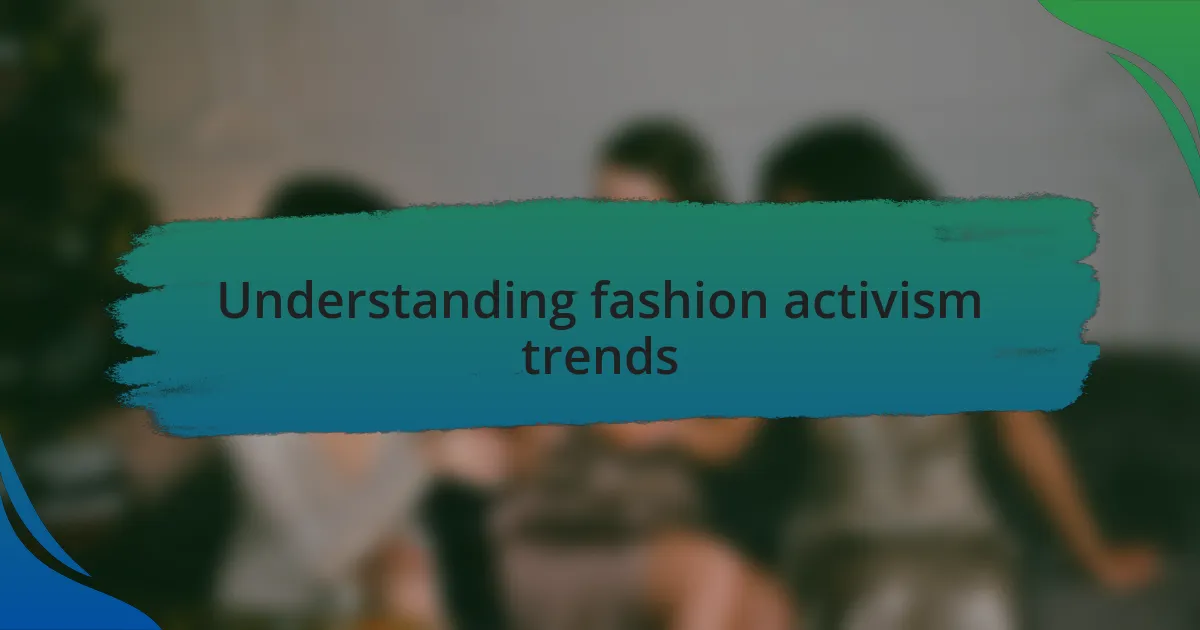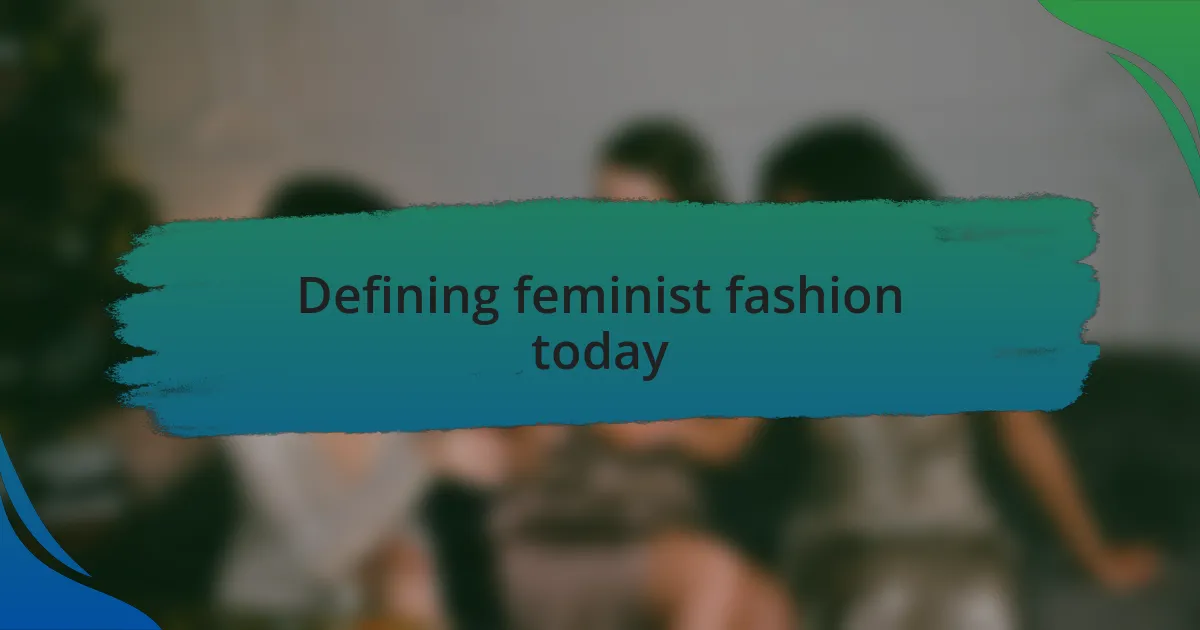Key takeaways:
- Fashion activism intertwines personal expression with social change, using clothing as a medium for protest and support.
- Sustainable practices in fashion reflect a genuine commitment to ethical production, resonating with consumers’ values.
- Inclusive fashion embraces diversity in bodies and identities, promoting a broader representation of beauty.
- Feminist fashion challenges societal norms, empowering dialogue on gender equality and supporting female artisans through business practices.

Understanding fashion activism trends
Fashion activism trends reflect a powerful intersection of personal expression and social change. I remember attending a fashion show where models wore garments adorned with protest slogans. It struck me how clothing can amplify voices in ways that words alone sometimes can’t. Isn’t it fascinating how a simple shirt can transform into a statement of resistance or support?
I’ve noticed that many brands now embrace sustainable practices, not just as a marketing strategy, but as a genuine commitment to ethical production. This shift often resonates deeply with consumers who are eager to align their fashion choices with their values. Have you ever wondered how your wardrobe choices could impact the planet? It’s empowering to consider that our purchasing decisions can support artisans instead of exploitative labor practices.
Moreover, the rise of inclusive fashion – brands that cater to diverse bodies, genders, and cultures – speaks volumes about the evolving dialogue surrounding identity in fashion. I recall my delight in discovering a brand that celebrated online body diversity through every campaign. Why shouldn’t fashion embrace all forms of beauty? This trend encourages us to rethink traditional narratives and embrace a more holistic view of style, promoting an authentic representation of ourselves.

Defining feminist fashion today
Feminist fashion today is about more than just style; it’s a movement rooted in solidarity and empowerment. I often find myself reflecting on how clothing can challenge societal norms. For instance, I still remember wearing a T-shirt with a bold feminist quote during a social gathering. It sparked conversations about gender equality and allowed me to share my views in a way that felt both comfortable and impactful. Isn’t it amazing how fashion can facilitate dialogue around critical issues?
In this evolving landscape, many designers are intentionally crafting collections that highlight women’s narratives and experiences. I came across a collection that featured patterns inspired by feminist literature, which resonated deeply with me. It made me realize how art and fashion can create a bridge between personal stories and broader societal movements. Have you ever thought about how what you wear tells the world your values?
Today, we see a conscious effort among brands to prioritize female empowerment, not merely through their designs, but in their business practices as well. I’ve witnessed local boutiques showcasing women artisans, which truly uplifts the community. Supporting these brands means aligning our wardrobe choices with our beliefs. Isn’t the idea of fashion acting as a catalyst for change empowering?